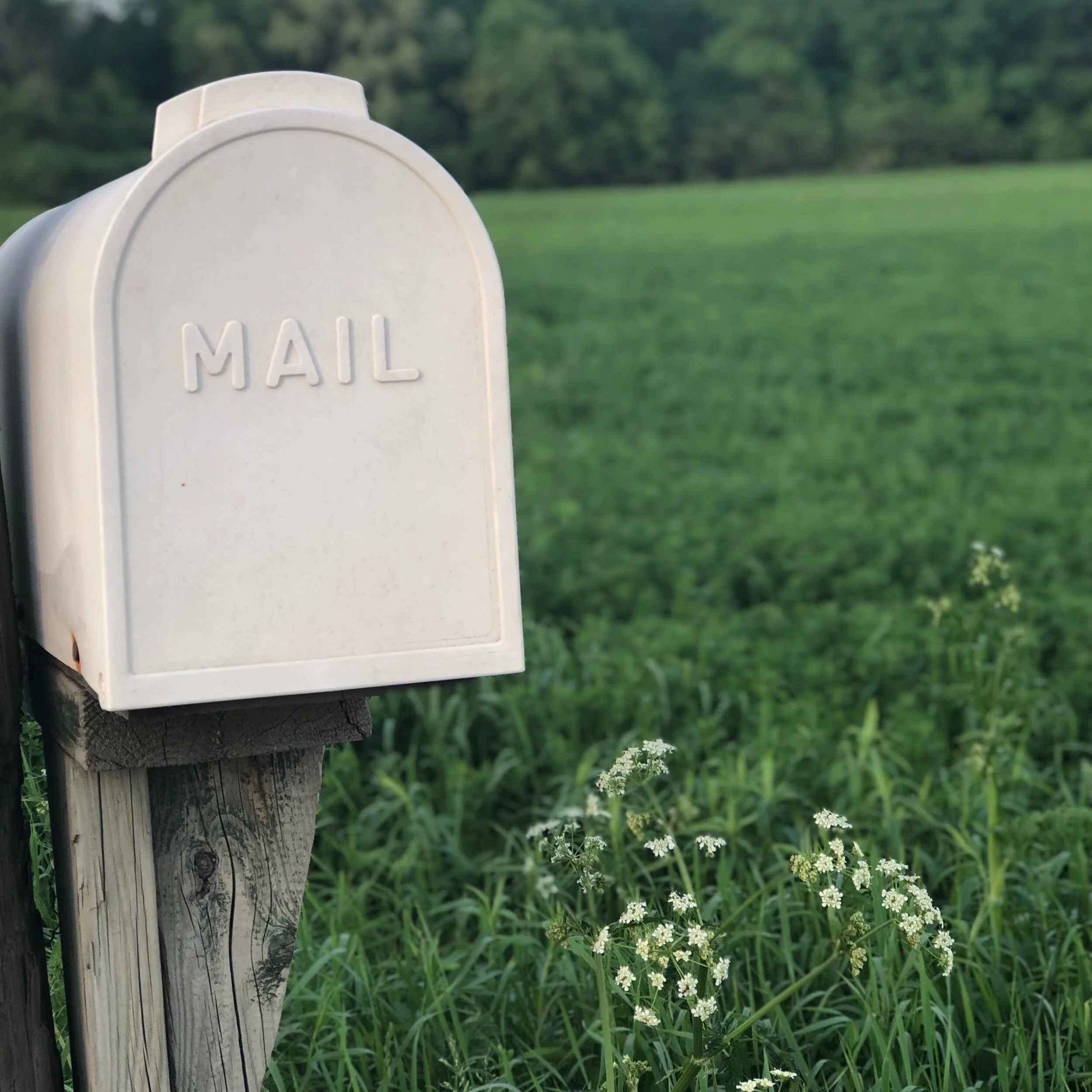My conversation today with Paul Hood, which in many ways is a continuation of the “listening” conversation that we had earlier this week, begs the question of whether fundraisers support the notion of grateful patient programs and the like, or do they merely tolerate them, and given the opportunity, would prefer that their work be more exploratory. When I think of fundraisers like Paul who insist that their practices align with the highest ethical standards, I believe they would be far more fulfilled without some the data and, instead, to simply rely on their communication and relationship-building skills. Both of which our guests consistently demonstrate that fundraisers have in remarkable and immeasurable ways. The question becomes whether their employers give them the opportunity to use them.
Read MoreKathryn asks when we are going to begin having some tough conversations about the fundraiser’s experience? And, depending on where we find ourselves in the fundraising community, when are we going to ask whether we are contributing to or undermining their opportunity for success? Perhaps some of us don’t really care how successful the fundraiser actually is? For Kathryn, the answer to these questions is quite simple; whether we’re talking about boards or bosses, association leaders, consulting shops, direct response, search firms or wealth screening, the majority of us are curating a culture that has a creepy obsession with the numbers. From my vantage point, if we don’t learn how to measure at least something qualitative really quickly, the entire system might just collapse.
Read MoreSome of us don’t understand our donor’s decisions because we’re not listening. Today, Wanda and I wrestled with the question of whether fundraising professionals are taking the time to hear to their donor’s “money” story. Wanda shared that by listening closely to the role that money has had in the lives of our donors, we are given an opportunity to resolve some of the other power dynamics that often surface in these relationships. What makes these conversations so important is that they afford the fundraiser insight into the nuances that inform their donor’s decisions and perspective that gift histories and wealth screening information cannot. While such data might enlighten us in some ways, we will never learn more than by sitting down, perhaps over coffee or lunch, and inviting them to share in this way.
Read MoreI’m always grateful when guests like Becky allow me to integrate their thinking and are likewise confident enough to integrate mine. Today, Becky and I wrestled with how we as white fundraisers can be allies with our black, brown and indigenous colleagues. To begin with, I suspect that what triggers most of our hesitancy is making our way through conversations of this sort without putting our foot in our mouth, saying something we might regret, or implying that we’re completely naive and out of touch. My inclination is always to jump in with both feet, to be receptive to feedback, and to be able to admit quickly when you’ve made a mistake.
Read MoreMy conversation today with Kevin reminded me of all the dangerous assumptions that we sometimes make about how fundraising really works and of the practices that often compel us to think about what we do. After 33 years of experience leading development programs for both local and international organizations. Kevin's not afraid to challenge people’s thinking when it comes to supporting good causes. For example, how many of our challenges originate from the belief that the only way to raise more money is to accumulate more donors? And, once donor acquisition is running amok, do hoards of $20-40 gifts lead one to assume that these gifts accurately reflect the capability of their donors? Do contemporary fundraising practices convince us that our donors are broke and therefore perpetuate our low expectations?
Read MoreSeveral of our recent conversations have been about what fundraisers should expect of the organizations they work for and how they can discern whether the boss has an accurate understanding of how fundraising actually works. Sarah has taken this inquiry and made it the focus of her research. Among the various questions she asks, perhaps the most relevant for fundraisers in transition is whether they should expect the boss to have invested in their own professional development in fundraising.
Read MoreOur recent conversation with Sandi Bliss caught Tammy’s attention. Our discussion reminded Tammy of some of the observations she made earlier in her career while supervising a team of fundraisers. Tammy observed that once her team no longer had something tangible to “sell,” they began to feel like impostors and didn’t quite know how to negotiate more complex and long-term giving opportunities.
Read MoreWhen meeting with a client, Sherry doesn’t go straight to fundraising tactics. Instead, in order to understand whether an organization is up to the task of achieving its goals, she begins by asking some probing questions. This often starts with knowing how much money needs to be raised, as opposed to some vague and arbitrary numbers, and whether there is a willingness to dedicate the resources necessary. As Sherry points out, a lot of us are signing on for jobs where the expectation is nothing more than to tell stories and ask for money. That’s not how it works.
Read MoreAs a Latinx fundraiser for thirty-five years, Armando has earned the right to have an opinion or two about the challenges we’re facing in today’s nonprofit sector and he believes that, in many ways, we’re missing the point in some of our most heated debates. Armando insists that if decolonizing philanthropy is our goal, it’s not going to happen by focusing on large foundations. We’ve got to remind ourselves what we’re all told in fundraising 101: foundations have never been where the real sustainable opportunities are and never will be. What’s worse, convincing ourselves that in some way the powers that be behind these large foundations will just hand over their power, influence, and assets is simply naive.
Read MoreToday’s conversation with Jeff at EAB was intriguing to say the least. Our conversation, informed significantly by the research that Jeff and his team have either conducted or been a part of, centered around the question of how much of fundraising’s pre-pandemic playbook we are going to throw out and what are we going to keep. Jeff shared with me that the traditional advancement models we see in higher education, largely predicated on alums willingness to show up and agreeing to participate, hasn’t been showing signs of improvement for quite some time. He explains that these aspects of fundraising has been on an unsustainable path for quite some time and that the pandemic simply forced many of us to confront this reality.
Read MoreAs is customary on the podcast, we have thought provoking conversations that give us hope of one day arriving at more enlightened fundraising practices. Well, today’s conversation really had us moving in that direction; and I am really grateful to Cathy for being our provocateur today. Cathy helps organizations raise money in difficult places, for causes that don’t always make for the easiest of stories to tell, and I appreciate her for challenging our thinking about where storytelling makes sense and where it doesn’t.
Read MoreMy conversation with Karl immediately reminded me of the brilliant little book, Obliquity, by LSE and Oxford professor John Kay, who makes the argument that our goals are best achieved indirectly. While counterintuitive, Kay explains that the most successful, most profitable enterprises don’t focus on profits or shareholder value. Arguably, this is a lesson fundraising hasn’t learned. Far too much of contemporary fundraising adheres to a direct approach, and I would venture to say that our fundraisers suffer the brunt of this truth. The direct approach convinces us that our attention should be narrowly focused on donors and dollars.
Read MoreIt sounds as if donor-centered fundraising might have a bit of a PR problem, and Scott’s got the data to explain why. A couple of months ago, Scott launched a poll which asked, is "donor-centric" fundraising on its way out? While the poll results may not be all that surprising, a close look at the participants behind the responses tell an interesting story. Among those participating in Scott’s poll, the guardians of donor-centered fundraising tend to be older, white men working for large institutions.
Read MoreMy conversation with Alex today raises the question of whether the pandemic was a jumping off opportunity for those who have for stuck on a burning platform for far too long. Throughout the pandemic I have heard several of my guests similarly insist that the pandemic forced critically important changes that were easy to avoid until a crisis of this magnitude came along. Alex explained that for some organizations, the pandemic was an opportunity to demonstrate bravery, increase their tolerance for risk, and persuade key decision makers to do the same.
Read MoreImagine being brand new on a job just days before the pandemic put nearly the entire world on lock down. What would that experience be like? That’s the question I started with today in my conversation with Gail Carter who has managed to successfully navigate her first year as the Vice President of the University Development at the College of Charleston. I was most intrigued to learn that the lock down didn’t necessarily impede Gail’s acclimating to the new role, and it seems she is well prepared for the road ahead.
Read MoreWhen fundraising is compared to sales, when we insist on pre-determined solicitation amounts, and when everything is all about the ask I’m inclined to ask where is the conversation? Where are we demonstrating our ability to have a meaningful conversation with another human being? As Sandy and I discussed today on the podcast, it concerns me that so few fundraisers have embraced the notion that, as poet and Oxford professor David Whyte says, the conversation is the work. As Sandy evidently has, how about we talk about multi-million dollar conversations rather than multi-million dollar asks?
Read MoreSomeone early in my career explained that nonprofits are notorious for operating at least two years behind the rest of the working world when it comes to innovation. This individual insisted that rather than being the early adopters, we’re more inclined to the be the laggards due to our aversion to risk. Contrary to what this person had observed, I have always believed nonprofits should be the innovators rather than the last to adapt to someone else’s bold, new idea; slow to change means missing the chance to change the world.
Read MoreHow often do we ask ourselves whether half as much effort might yield the same results? Perhaps these are the types of questions that the pandemic has afforded us the opportunity to ask; and I suspect that a few of us, like Mike Hoffman at the US Naval Academy, have been taking good notes. Today, Theresa and I had the pleasure of talking with Mike who shared with us some of the lessons he and his team have learned in the last year. The first among them, when it comes to fundraising, perhaps less can really mean more.
Read MoreFor over a year and a half, David O’Brien and Matthew Craig conducted 60 interviews with nonprofit leaders around the country; and in their new book, Building Smart Nonprofits, they share their thoughts on a range of subjects from sources of capital, the infamous overhead myth, evaluation of program effectiveness, and the telling our story. David explained to me that many of the leaders they interviewed are re-examining what has and has not worked in their favor and how their boards partner with them to overhaul their funding models.
Read MoreFundraising as an interdisciplinary endeavor was where Fraser and I wrapped up our conversation however that was only after tossing around a myriad of topics ranging from US politics to the effects that Walt Disney and Don Draper have in our worldviews. I was grateful to hear Fraser suggest that we bring behavioral economics to the forefront of our thinking and allow it along with a few other disciplines to enhance our thinking in the field. The team at Good Works strikes me as one that can be counted on to think carefully and critically about what their client’s are trying to achieve.
Read More


















